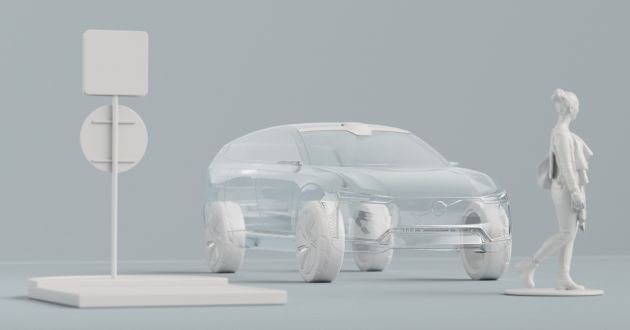Real-time data is an important resource in the development of safer cars, as the information gathered can be used to validate certain features. In the case of autonomous driving systems, automakers test their vehicles for long distances on public roads to record as much data as possible to ensure they function with minimal or no issues.
Of course, while these tests do yield benefits prior to a car’s launch, automakers are not able to conduct them on every single road on the planet. Additionally, when cars reach the hands of consumers, they have to deal with real-life situations that can differ quite significantly from market to market, with a variety of variables like climate, traffic, geography, driving styles and road conditions.
Volvo has always used a data-driven approach to safety, as it currently utilises real-time traffic data to develop new safety technologies to make its cars even safer. During the company’s recent Tech Moment event, it announced that for its next generation of cars, it is looking to process data directly from customer cars in real time, provided they opt to share data.
According to the Swedish carmaker, this will allow it to make continuous and much faster improvements to its cars, constantly improving safety levels. The data gathered would include continuous inputs on the car’s environment from sensors like the high-resolution LiDAR supplied by Luminar. The LiDAR, along with other sensors, will be linked to an Nvidia Drive Orin system-on-a-chip that acts as the big brain to control autonomous driving functions.


With this new approach, engineers won’t have to wait for data to be gathered before performing their analysis and to come up with a solution. Instead, they can access, in real time, sensors on customers cars in order to validate and verify autonomous drive features quicker, before they are rolled out to existing systems via over-the-air updates.
The first car to benefit from this new approach to safety development will be Volvo’s upcoming SUV – previewed by the Concept Recharge – that is built on the company’s dedicated EV platform. Volvo is also working with its Zenseact division on a data factory that can contain over 200 pebibytes (225 million gigabytes) of data generated from millions of kilometres driven by tens of thousands of Volvo drivers.
“With help from real-life data we can speed up our development processes and go from years to days. As real-time collection generates a lot more data, we can create better and higher-quality data sets that allow us to make better and quicker decisions on the next advancements in safety. We’re taking a giant leap to increase safety in and around our cars,” explained Ödgärd Andersson, CEO at Zenseact, which is Volvo Cars’ autonomous driving software arm.
With real-time data processing, Volvo says its cars will improve and have the hardware and software capabilities. This will allow the car to more effectively take over on its own in the event the driver does not respond in life-threatening situations after repeated warnings. However, it added that the driver always remains in ultimate control, with the safety technology acting as a support to watch over the driver “like an extra pair of eyes and brains.”





The post Volvo looking to capture real-time data directly from customer cars to speed up safety improvements appeared first on Paul Tan's Automotive News.


0 Comments